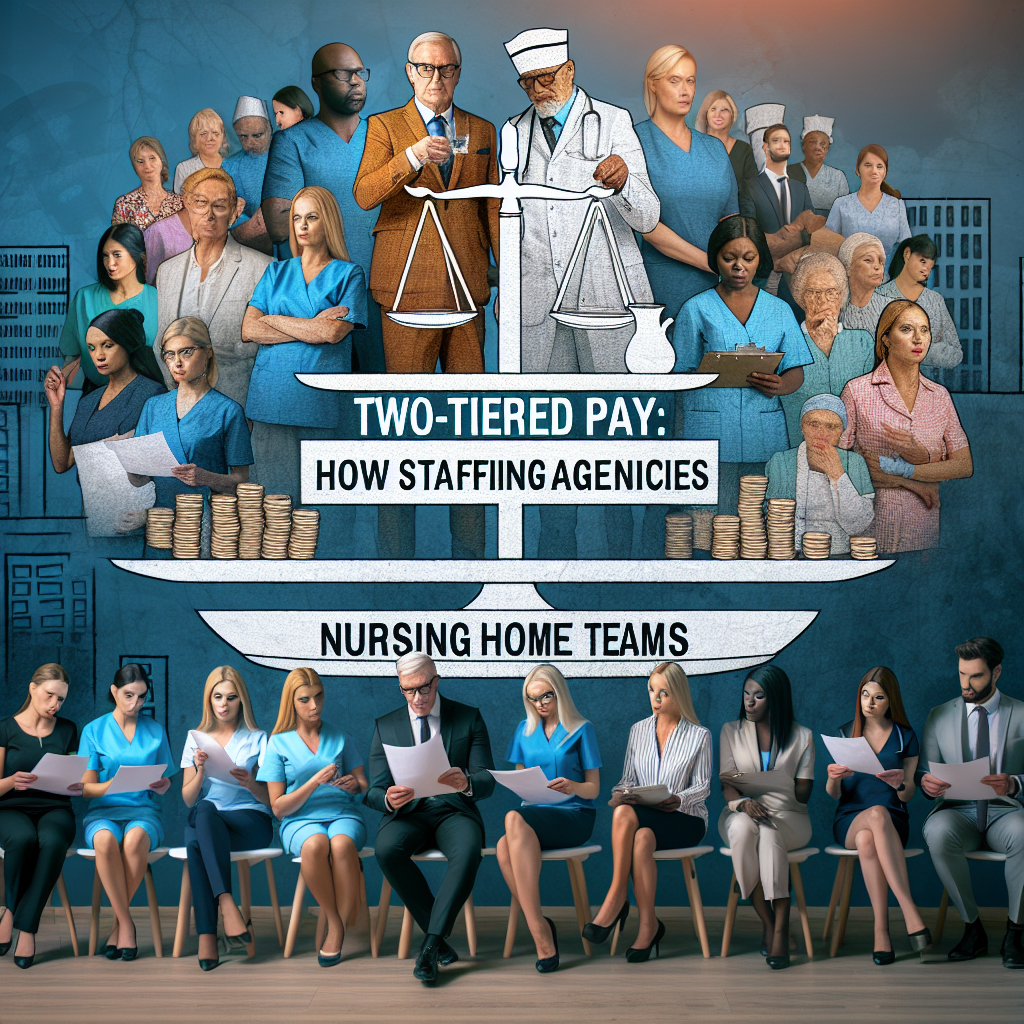New York, NY—In a time where healthcare facilities, especially nursing homes, are striving to provide the best care for the nation’s elderly, staffing agencies are playing a pivotal role, albeit controversially. The emerging trend of two-tiered pay systems, facilitated by these agencies, casts a long shadow on the dynamics of nursing home teams, fostering an environment that experts argue could be detrimental to both staff morale and patient care.
A recent study by the Health Care Cost Institute found that staffing agency nurses are often paid significantly higher rates than their directly hired counterparts, sometimes as much as 50% more for the same job. This disparity not only strains the budgets of nursing homes but also sews seeds of discord among staff members.
Margaret O’Connor, a nursing home administrator with over 20 years of experience, shared, “It’s disheartening to see the division and resentment that emerges when two nurses, doing the same job, side by side, are compensated so differently. Not only does it affect the team’s cohesion, but it also makes it incredibly difficult to foster a stable, committed workforce.”
The two-tiered pay system arises as nursing homes, desperate to fill vacancies and maintain staffing levels, turn to staffing agencies. While these agencies provide a quick solution to staffing shortages, their business model, built around maximizing profits, translates into higher pay rates for their staff – a cost that is then passed on to the already financially strained nursing homes.
This system creates a precarious situation where directly hired staff, feeling undervalued and demoralized, are more likely to leave for agency roles or other higher-paying opportunities, exacerbating the very shortages they were meant to alleviate. Furthermore, the resultant high turnover among directly hired staff undermines the continuity of care that is critical for the well-being of nursing home residents.
In the words of Dr. Jessica Greene, an expert in healthcare policy, “While staffing agencies may offer a short-term fix to staffing woes, the long-term consequences of two-tiered pay systems can erode the foundation of nursing home teams. Quality of care in nursing homes is heavily dependent on consistent, team-based care; any factors that jeopardize this should be considered a serious concern.”
As more stakeholders within the healthcare industry acknowledge the adverse effects of two-tiered pay systems, the call for reform grows louder. Solutions such as better regulation of staffing agency practices, increased funding for direct staffing in nursing homes, and more transparent pay structures are being discussed.
The situation calls for a balanced approach that addresses the immediate staffing needs of nursing homes while safeguarding the integrity of their care teams. Without such measures, the divide created by two-tiered pay systems threatens to deeply undermine the quality of care that can be provided to some of society’s most vulnerable members.


